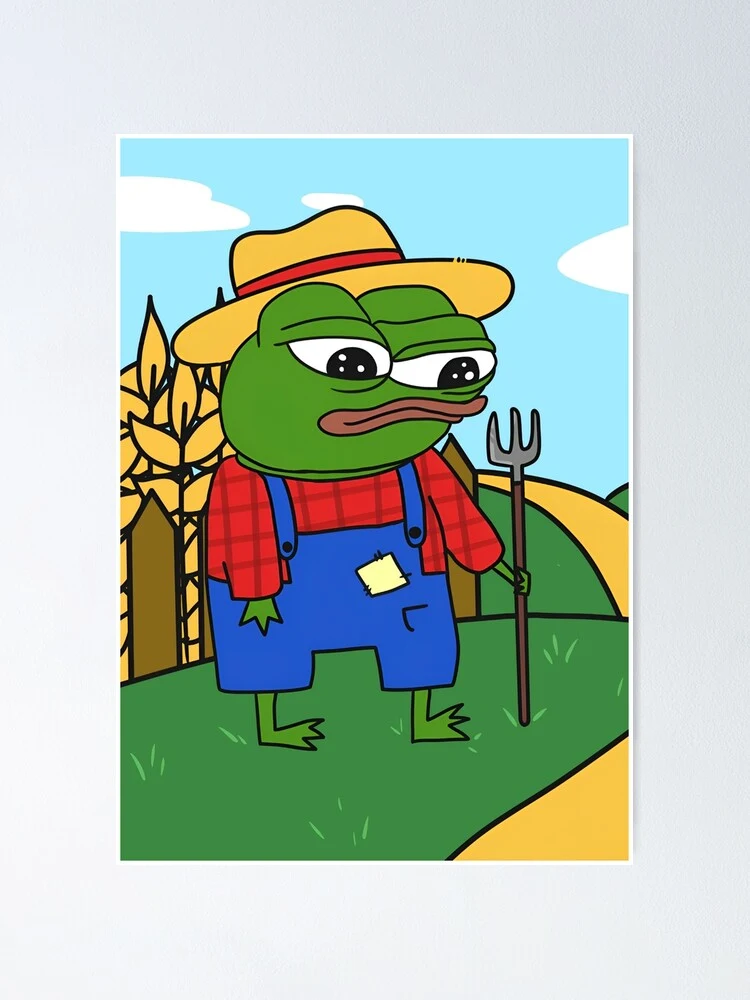Hi everyone 

I just want to rant a bit about misinformations I hear from “educational” and “intellectual” sectors in my country regarding agriculture and the Green Revolution.
For those of you who don't know, Brazil is s breadbasket, along with our neighbors Argentina, Uruguay and Paraguay. Brazil alone produces enough food for over 1 billion people which has lead to a prosperous agro business in the country, speaking from a family background, my maternal grandma was a dairy farmer and she still keeps a small garden to plant veggies on her house. My late paternal grandpa was was a seed salesman and he owned a Silo at one point and my dad is an agronomist (though his company works with forestry). Most cities in the Southern Countryside are agricultural focused, similar to the American Midwest, the Centre-West region of Brazil is another breadbasket however their focus is on cattle (though soybean production increasing). The Agro is incredibly professionalized and Brazil has produces industrialized Agro derived products like Soybean oils, processed coffee and biofuels.
That being said it is no secret the Brazilian left loathes the Agricultural system, but what makes me particularly angry is how much they misinform or straight up lie about making use of “educational channels”.
For instance I've noticed on Youtube channels like Brasil Escola and other Youtube “Professors/Teachers” will rant about how the Green Revolution is bad because of Rural Exodus and the horror, PEOPLE MAKING MONEY OUT OF SELLING CROPS 

The worst part is that these “teachers” make their videos to prepare High School Seniors for the ENEM tests (the ENEM is kind of like the American SAT). The ENEM itself is extremely politicized as you need to write an essay (redação) about a given subject. The subject changes every year. For instance the 2022 Redação Subject was “Challenges facing the traditional peoples of Brazil”, that is the indigenous and quilombolas. Last year the subject was “Challenges to face the invisibility of caretaking work made by women”. In 2019 it was “democratization of cinema access in Brazil”, and so on.
Scrolling down the comments of the Youtube Teachercels channels I keep finding the same nonsensical claim:

I always read this nonsense online when leftoids talk about the Agro Business. That number is false.
O censo agropecuário de 2017, o mais recente, também desmentiu os números superestimados da produção familiar, e revelou que as propriedades assim enquadradas respondiam por 23% do valor total da produção dos estabelecimentos agropecuários.
Copyright © 2024, Gazeta do Povo. Todos os direitos reservados.
The real number is around 23%
I remember the commies at /r/brasil soying about the MST (Movimento dos sem Terra) or “Landless Movement” a leftist group dedicated to private property occupation. They talked about the MST as id they singlehandedly fed the entire country.
Now, without mentioning their claims are completely bollocks, it seems they would rather disrupt the entire AGRO and place it under new forests or subsistence farming. Excluding the fact this would kill dozens of millions abroad and starve hundreds of millions by disrupting food supplies, it would cause starvation in Brazil as even the demonized AGRO crops (soybeans, maize, wheat) and cattle go beyond export.
Quando se fala de soja, ela está presente em vários outros alimentos, no óleo, no suíno, no bovino, no peixe. Ela é base da ração para esse tipo de rebanho. Você não se alimenta de soja de uma maneira geral, mas indiretamente ela entra na alimentação. > Com o milho é a mesma coisa. O frango é um milho com asa: 73% do frango é milho”, diz o pesquisador da Embrapa.
Corn and soy are used to produce oils and they feed the livestock which is consumed by Brazilians and foreigners alike. Not to mention derivate products like noodles and processed stuff. There's also coffee and cotton, the first is present in almost every Brazilian Household, the latter is the source for clothing.
These São Paulo and Rio de Janeiro teachercels and their leftoid “students” have an extremely romantic, idealized vision of subsistence agriculture to the point of being close to Noble Savage myths. That being said, President Lula is a strange man on this regard.
Lula has close relationships with MST leaders and allowed for this anti agro propaganda to thrive inside our Educational System (it's not only Youtube channels, regular teachers and they commie unions are the same), however when it comes to actual policy he's all business as usual. He always nominates centre-right agriculture ministers from Agro dominated states, he has meetings with Agro producers and businessmen and promotes our exports to China while trying to secure Fertilizer imports from Russia (also a reason why Bolsonaro was friendly with Russians despite the Ukraine debacle). It could be argued he pays lip service to MSTcels.
Anyways, I think this one of the most damaging and dangerous types of virtue signaling and feel good politics, I hope they never get their way but right now is kind of worrying how much PR this sort of nonsensical callous misinformation campaign currently has.





.webp?h=8)






Jump in the discussion.
No email address required.
Wouldn't subsistence farming increase deforestation due to it being less efficient?
Jump in the discussion.
No email address required.
Yes, however to avoid it the most radical plans involve land reform and discontinuation of Agro exports, basically turning all our current arable land into subsistence farms. This would unironically bankrupt most of our cities and food industries, people think the Agro just benefits a few companies and rich farmers but the truth is it created a whole economy. There are transport companies taking the grains, cities that grew around fields, after people moved so came banks, supermarkets, car dealerships. There's the heavy Machinery industry used in agriculture, agrochemical sales companies and large factories for processing ethanol, sugar cane, flour, pig pellets, slaughter houses (frigoríficos). All these employed hundreds of thousands of people directly, I guess they should all become subsistence farmers too?
That's why I hate these Propaganda Campaigns so much, they use emotional appeal while offering no realistic solution, in fact their “solutions” would cause suffering and plunge us into poverty, all in the name of fell good politics.
Jump in the discussion.
No email address required.
Brazilian Leftoids are reading Ujamaa—The Basis for African Socialism by Julius Nyerere
From Socialism and Rural Development pamphlet by Julius Nyerere
Jump in the discussion.
No email address required.
More options
Context
More options
Context
More options
Context